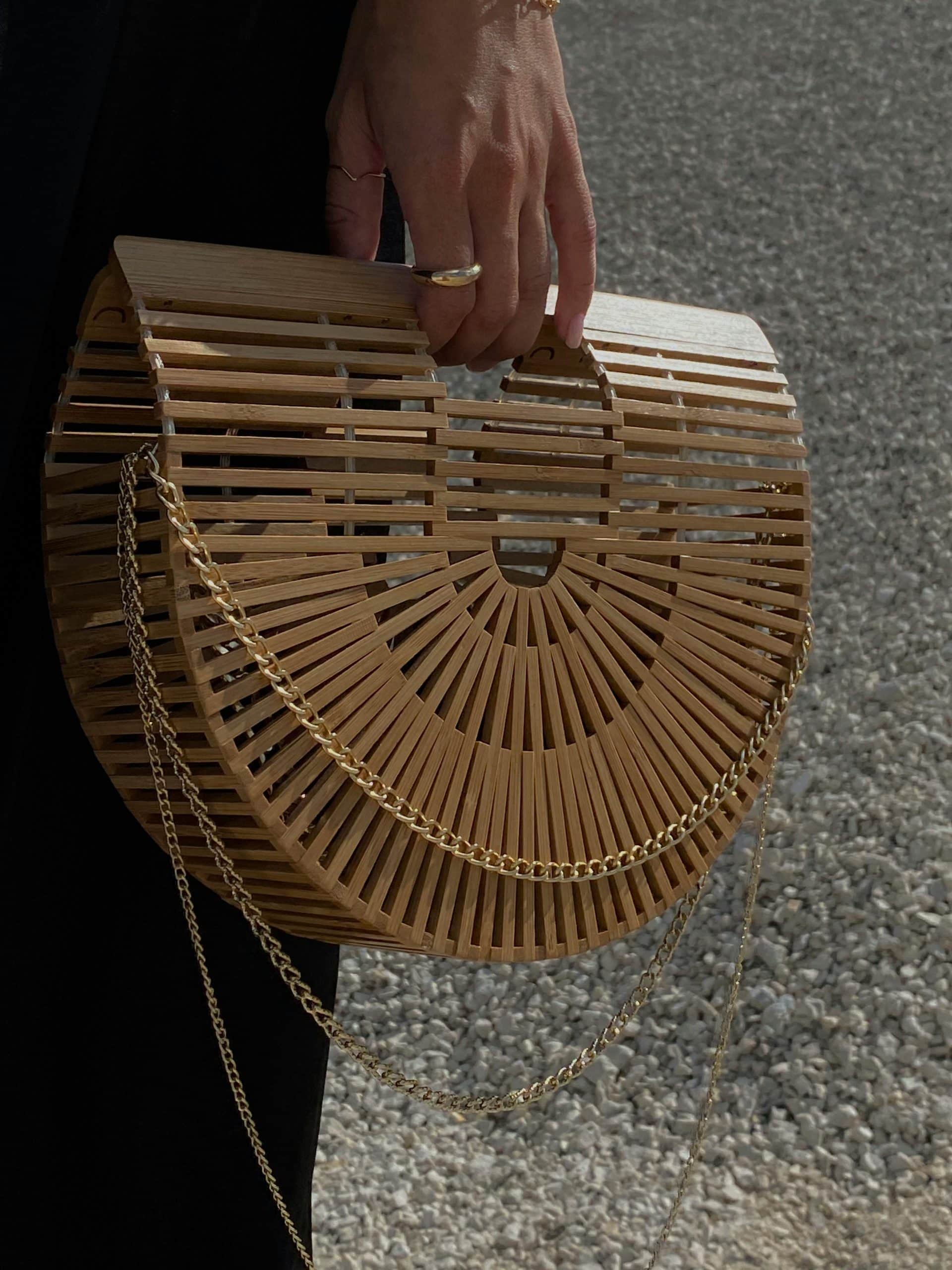The New Horizon of Conscious Luxury
Talk about luxury vegan handbags, and Stella McCartney’s name inevitably surfaces. Rightly so. Her early commitment, particularly the landmark Falabella bag, carved out a space where ethics and high fashion could visibly coexist. McCartney proved that bypassing animal leather didn’t require sacrificing desirability. But the terrain she helped pioneer is now far more dynamic. A discerning cohort of consumers has emerged, looking beyond established emblems. They seek uniquely crafted vegan designer bags that satisfy not only a sophisticated aesthetic but also deeply held values concerning animal welfare and environmental impact—all without skimping on quality or enduring style. This shift has fueled a compelling new wave of designers, individuals pushing the frontiers of sustainable materials and ethical production.
This isn’t just another rundown of the usual suspects. Instead, consider this an investigative foray into the workshops of eight compelling, perhaps less-heralded, vegan brands currently producing exceptional vegan designer handbags. It’s a curated look for those navigating the vibrant landscape of ethical elegance. We’re focusing on discovery here: uncovering innovative materials, understanding ethical fashion practices rooted in transparency, and appreciating the sheer artistry emerging from labels that are perhaps still building their mainstream presence. It’s about finding that elusive vegan handbag that doesn’t just accessorize, but articulates a story of mindful creation.
Craftsmanship Meets Next-Generation Materials
The path toward truly luxurious vegan accessories hasn’t been linear; it’s involved a significant material transformation. Initial forays often leaned on basic synthetics—PVC and polyurethane (PU). While animal-free, these materials presented their own environmental baggage and sometimes failed to deliver the tactile richness expected at the luxury tier. Fast forward to today: heightened ecological awareness and unwavering commitments to animal welfare have spurred remarkable innovation. We’re now witnessing a clear pivot towards sophisticated plant-based materials and advanced recycled textiles. You could almost feel the collective sigh of relief from conscious consumers.
This evolution reflects a broader recalibration within fashion. True luxury in the 21st century, it seems, increasingly weaves in principles of transparency, responsibility, and conscientious sourcing. It compels us to look “beyond the label,” demanding clarity not merely on what a bag is made from, but how and by whom. Navigating this requires discernment. The allure of “plant-based” can occasionally mask complex material truths, often involving plastic binders – a challenge these emerging designers frequently confront with refreshing honesty.
Rising Stars in Vegan Luxury
The burgeoning world of luxury vegan handbags is animated by passionate founders and inventive studios. Here are four making notable strides:
Freja New York: Minimalist Functionality
Freja New York feels like the answer to a very specific, very modern problem: finding the perfect work bag that balances utility with understated luxury. Founder Jenny Lei’s personal search sparked the brand’s creation. Their philosophy centers on “foundation pieces for a considered wardrobe,” championing timelessness and versatility over fleeting trends. This translates into an emphasis on quality craftsmanship, responsible production within a transparent supply chain, and small-batch manufacturing to curb waste. Based in New York, the aesthetic is pure, sophisticated urban minimalism.
Take the Paloma Tote (around $368). Described aptly as a bag that “means business without looking like it’s working overtime,” it perfectly captures the brand’s synthesis of elegance and practicality. Ideal for the professional navigating the daily grind. Freja utilizes high-quality vegan materials, including a noted “vegan merlot ultrafiber,” which lends the bags their sleek finish and durability. Enthusiastic feedback often highlights this blend: “Easily my new favorite bag brand. The perfect blend of minimal design and functionality”. Freja’s commitment to price transparency and minimizing environmental impact makes them a reliable destination for understated, ethically crafted luxury.
Lost Woods: Pioneering Plastic-Free Vegan Leather
Holly Edwards founded Lost Woods out of a dual commitment: profound respect for animal welfare and a pointed frustration with the plastics often lurking within materials marketed as “plant-based.” Her mission? To create handbags as planet-friendly as they are undeniably chic. While originating in the UK, Lost Woods partners with artisans in Portugal, tapping into renowned craftsmanship. What truly sets them apart is their dedication to one of the most discussed innovative materials in sustainable fashion right now.
The Willow Chain Bag serves as a prime example of their aesthetic: elegant, adaptable, and detailed with premium touches like cascading gold chains. It transitions effortlessly from a vegan crossbody bag to a shoulder or evening piece. The star here is MIRUM®, a genuinely revolutionary, plastic-free vegan leather from Natural Fiber Welding (NFW). Composed entirely of natural rubber, plant oils, waxes, and natural fibers (like cotton), MIRUM® boasts significantly lower greenhouse gas emissions than conventional leather or plastic synthetics and is designed with recyclability in mind. Edwards’ rigorous search for a truly plastic-free option underscores the brand’s dedication to material integrity, extending even to organic cotton linings and plant-cellulose structural components. Lost Woods represents the sharp end of sustainable luxury, proving ethics and aesthetics can dance beautifully without plastic compromise.
Thalie Paris: Cactus Leather Couture
Launched under the unique global circumstances of March 2020 in Paris, Thalie infuses the vegan luxury scene with a distinct high-fashion sensibility. Founder Nathalie Dionne draws on over 15 years navigating haute couture across international fashion hubs. Her goal is clear: merge Parisian elegance with sustainability via biomaterials. The name itself, from the Greek “Thaleia” (meaning “the flourishing”), signals a reverence for nature’s vitality and human ingenuity. Dionne’s previous work gracing pages like Vogue and Elle confirms the brand’s sophisticated ambitions.
Thalie’s collection, featuring designs like the Florine, embodies this chic, eco-aware ethos. The principal material showcased early on was Desserto Cactus Leather, an innovative, OEKO-TEX certified organic vegan material derived from nopal cactus sustainably cultivated in Mexico. Celebrated for its softness, durability, breathability, and notable water resistance (a leg up on some animal leathers), cactus leather delivers a luxurious handle with a significantly reduced environmental toll. Thalie reinforces its ethical posture through audited European manufacturing (specifically Portugal), recycled packaging, and its status as a PETA-Approved Vegan brand. Thalie exemplifies the maturing vegan designer bags market, where elevated design confidently embraces advanced plant-based materials.
Melina Bucher: German Engineering Meets Vegan Innovation
Hailing from Germany, Melina Bucher operates as a PETA-approved vegan brand grounded in sustainability, cruelty-free ethics, and an inventive approach to design and materials. While detailed product specifics require further digging based on initial findings, the brand garners attention for its quality commitment and potential use of leading-edge materials like vegan leather MIRUM®, having been noted for offering black MIRUM® bags. This suggests an alignment with meticulous German design principles – durability, precision, and technological advancement.
One might picture a structured shoulder bag or a sleek vegan tote bag reflecting this philosophy. The price point likely sits in the mid-luxury range, targeting consumers seeking investment pieces. The brand’s core message is proving that high-end accessories are achievable without animal inputs, concentrating on sustainable innovation and quality craftsmanship. Melina Bucher adds a distinct voice focused on engineered quality and advanced material science to the expanding European vegan luxury landscape.
Mashu: Architectural Accessories from the UK
Mashu, operating from the UK, brings an artistic, almost architectural eye to vegan handbags. Their designs stand out with chic minimalism, organic silhouettes, striking monochrome schemes, and unique hardware, frequently gold-plated. The brand deliberately selects luxurious, eco-friendly materials, marrying aesthetic ambition with sustainable practice.
Noteworthy pieces include the Penelope Tote, crafted from cactus leather (around $775 CAD or approx. £450-500), and the vibrant Anemone Pink Midi Tote ($575 CAD / approx. £340). These bags display Mashu’s talent for distinctive shapes and hardware, suitable for elevating daily wear or serving as striking evening accessories. What truly distinguishes Mashu is its adventurous exploration of diverse sustainable materials: Raffia, organic cotton, Piñatex (pineapple leather), apple leather, VEGEA (grape leather), BioVeg, and cactus leather. This material curiosity underscores their drive to find beautiful, responsible alternatives, cementing their position among innovative vegan brands in the UK.
Frida Rome: Edgy Luxury with a Secret
Injecting a dose of personality and punkish flair into the luxury vegan arena is Frida Rome, a PETA-certified brand from Manchester. Founded by two friends, the label operates under the playful banner “bad girls who do good things,” delivering designs that are slick and sophisticated yet undeniably edgy. Their most talked-about feature? An optional erotic story subtly woven into the bag’s lining – a detail that certainly turns heads.
Their debut WEEK/END vegan crossbody bag (£335) captures this spirit: a boxy shape punctuated with gold studs, offering versatility via interchangeable handles and straps, and even the ability to deconstruct for packing. Frida Rome champions realistic faux leather alternatives, utilizing materials derived from cactus and apple, alongside recycled cotton and eco-suede incorporating recycled PET plastic. They highlight the impressively authentic look and feel of their chosen cactus leather and maintain a firm PVC-free policy. With UK-based manufacturing, cruelty-free certification, and sustainable packaging, Frida Rome carves out a unique space through bold character, unconventional features, and the adoption of innovative plant-based materials.
Luxury Vegan Handbag Showcase
| Designer (Brand Name) | Featured Bag (Model Name/Type) | Key Material(s) | Aesthetic/Highlight | Approx. Price Range* | Ethos Note |
| Freja New York | Paloma Tote | Vegan Ultrafiber | Minimalist, Functional Luxury | $$$ ($300-$400) | Considered Wardrobe, Transparent Supply Chain |
| Lost Woods | Willow Chain Bag | MIRUM® (Plastic-Free), Organic Cotton | Elegant, Versatile, Gold Hardware | $$$ (£200-£350) | Plastic-Free Pioneer, Material Innovation |
| Thalie Paris | Florine Bucket Bag | Desserto Cactus Leather | Parisian Chic, Sustainable Couture | $$$$ ($400+) | Cactus Leather Focus, European Made |
| Melina Bucher | Structured Shoulder/Tote | MIRUM®, Other Sustainable Options | Precise, Innovative, Quality | $$$ ($300+) | German Design, Cruelty-Free Innovation |
| Mashu | Penelope Tote / Anemone Tote | Cactus Leather, Piñatex, Apple, VEGEA, etc. | Architectural, Minimalist, Artistic | $$$$ ($500-$800 CAD) | UK-Made, Material Exploration |
| Frida Rome | WEEK/END Crossbody | Cactus Leather, Apple Leather, Recycled Materials | Edgy, Punk-Inspired, Unique Lining | $$$ (£335) | UK-Made, Strong Personality, Plant-Based |
*Price Ranges Estimated: $$$= $300-500, $$$$ = $500+ based on available data and brand positioning.
Innovation Beyond PU
The sheer variety showcased by these designers underscores a pivotal trend: the decisive move beyond basic PU/PVC faux leather towards a far richer spectrum of innovative materials. Getting acquainted with these materials is crucial for appreciating the strides being made in sustainable fashion.
- MIRUM®: Championed by brands like Lost Woods and Melina Bucher (and others like jeane+jax and Segan), this material marks a significant advancement. Its defining feature? Being completely plastic-free, composed of natural rubber, plant oils, waxes, and fibers. This composition promises lower greenhouse gas emissions during production and offers potential for circularity – it can theoretically be recycled back into new MIRUM®. Its adoption signals a serious commitment to tackling the environmental anxieties tied to traditional plastics.
- Cactus Leather (Desserto): Employed by Thalie, Mashu, and Frida Rome (plus Miomojo), Desserto originates from the nopal cactus. It earns accolades for its softness, durability, breathability, and water resistance, presenting a high-performance alternative with plant roots. However, it’s vital to approach the “plant-based” category with analytical nuance. While derived from plants, materials like cactus, apple, or pineapple often necessitate polyurethane (PU) binders or coatings to achieve the desired durability and finish. This doesn’t nullify their value – they absolutely reduce reliance on virgin plastics and animal slaughter – but transparency regarding their full composition is essential for informed choice. This stands in contrast to the entirely natural composition claimed by MIRUM®.
- Fruit/Other Plant Leathers: Innovation extends eagerly into materials derived from food industry byproducts. Apple leather, pineapple leather (Piñatex), grape leather (VEGEA), and corn leather appear increasingly in collections from brands like Alexandra K, Frida Rome, and Mashu. More niche examples, like Luckynelly’s Wastea (from tea waste) or Berriestex (strawberries), push boundaries even further. These materials represent exciting pathways for upcycling and finding value in waste streams, feeding into a more circular economy, although the caveat about potential plastic content often applies here too.
- Cork: A traditional material proving its modern sustainable credentials, cork is featured prominently by brands like VCharles and Portuguese specialists such as Corkor and LaFlore Paris. Harvested from the bark of cork oak trees without felling them, cork vegan leather is naturally durable, water-resistant, lightweight, and possesses a unique, appealing texture. Its long history of use and sustainable harvesting methods make it a dependable player in the vegan material field.
- Recycled Materials: Alongside bio-based innovations, utilizing recycled materials remains a cornerstone of sustainable design. This includes recycled PU, linings crafted from recycled PET plastic bottles (a practice adopted by established vegan brands like Matt & Nat and Pixie Mood), and sophisticated textiles like ECONYL®, a regenerated nylon derived from fishing nets and other nylon waste. These approaches directly address existing waste, lessening the demand for virgin resource extraction.
Navigating Your Luxury Vegan Choice: Beyond the Hype
Selecting the perfect vegan handbag, particularly in the luxury sphere, involves more than just falling for its looks. It demands a measure of critical assessment to ensure the choice truly aligns with your values and expectations. Peer behind the marketing curtain and seek transparency. How open is the brand about its material makeup and supply chain practices? Do they clearly state which specific plant-based materials are used? Do they offer details on whether synthetic binders are part of the recipe? Certifications like PETA-Approved Vegan provide a baseline assurance against animal cruelty.
Consider the longevity question. While innovation is exhilaratingly fast, some vegan materials are still relatively young compared to millennia-old leather traditions. The reported instance of Aupen reverting to calfskin, citing a desire for “heirloom” quality, underscores that durability expectations remain exceptionally high in the luxury sector. Scrutinizing craftsmanship, the quality of hardware, and favoring timeless design over fleeting trends can contribute to a more sustainable, long-term investment. Materials with established durability track records, like high-quality cork or potentially the robustly engineered MIRUM®, might offer greater confidence for those prioritizing endurance. Ultimately, making a conscious choice means backing vegan brands that demonstrate genuine commitment to responsible fashion – and actively participating in shaping a better future for the industry.
The Flourishing Landscape of Ethical Elegance
The world of luxury vegan handbags is undeniably blossoming. It has expanded far beyond the initial trailblazers into a diverse, dynamic ecosystem brimming with innovative designers. As the emerging vegan brands spotlighted here demonstrate, a remarkable current of creativity is being channeled into crafting beautiful, stylish vegan handbags that harness cutting-edge, sustainable materials. From the plastic-free potential of MIRUM® to the varied applications of cactus, fruit, and cork leathers, the material palette available to designers—and consumers—is richer and more sophisticated than ever before. Aesthetics run the gamut, from the polished minimalism of Freja New York and VCharles to Mashu’s architectural artistry and Frida Rome’s bold personality.
This vibrant expansion confirms a heartening truth: choosing vegan luxury today demands no compromise on style, quality, or design integrity. By exploring these dedicated vegan brands, you can discover unique, thoughtfully made pieces that authentically reflect both personal taste and ethical conviction. Supporting these designers isn’t merely acquiring a beautiful accessory; it’s an investment in a more compassionate, innovative, and sustainable future for fashion, propelled by the power of informed, conscious choices.


